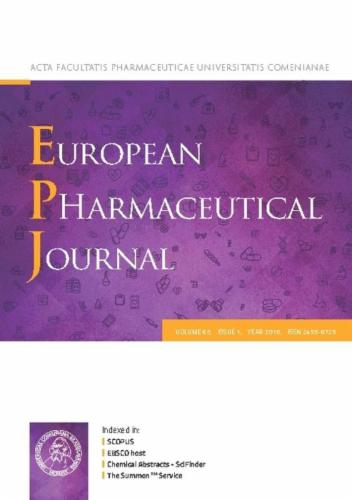Protein aggregation in the frozen state induced by dropping stress
IF 4.3
3区 医学
Q1 PHARMACOLOGY & PHARMACY
引用次数: 0
Abstract
The formation of protein aggregates, which can be immunogenic and lower the efficacy and safety of protein drugs, has been an issue in biopharmaceutical development for more than a decade. Although protein drugs are often shipped as frozen material, the effect of the accidental dropping of frozen proteins, which can occur during shipping and handling, on the physical stability has not been studied. Here, a frozen Fc fusion protein was subjected to dropping stress and the increase in the aggregate concentration was evaluated. Significant increases in micron-sized aggregates were observed at –30 °C (p ≤ 0.01), but not at –60 °C. Proteins adsorbed on the vial surfaces were not remarkably detached by the action of dropping and were not the primary cause of the increase in micron-sized aggregates. When the vials were dropped, local heat generation occurred and this led to local freeze-thaw stress that induced protein aggregation. Poloxamer-188, which is known to mitigate aggregation caused by freeze-thaw stress, effectively prevented the aggregation caused by the dropping stress in the frozen state at –30 °C. In addition, rapid freezing could suppress the aggregation caused by the dropping stress. The results demonstrated that dropping stress reduced the stability of proteins even in the frozen state, and they provide new insights into the formulation and freezing processes to prevent protein aggregation caused by dropping stress in the frozen state.

下降应激诱导冰冻状态下的蛋白质聚集。
蛋白质聚集体的形成可能具有免疫原性,降低蛋白质药物的有效性和安全性,这是十多年来生物制药开发中的一个问题。虽然蛋白质药物通常以冷冻材料运输,但在运输和处理过程中可能发生的冷冻蛋白质意外掉落对其物理稳定性的影响尚未研究。在这里,冷冻的Fc融合蛋白受到下降应力,并评估聚集体浓度的增加。在-30°C时,微米级聚集体显著增加(p≤0.01),而在-60°C时则无显著增加。吸附在小瓶表面的蛋白质并没有因滴下作用而显著分离,也不是微米级聚集体增加的主要原因。当小瓶掉落时,局部产生热量,这导致局部冻融应力,诱导蛋白质聚集。Poloxamer-188具有减轻冻融应力引起的聚集的作用,在-30℃的冻结状态下,有效地阻止了下降应力引起的聚集。此外,速冻还能抑制由落应力引起的凝集。结果表明,即使在冷冻状态下,下降应力也会降低蛋白质的稳定性,这为防止在冷冻状态下下降应力引起的蛋白质聚集的配方和冷冻过程提供了新的见解。
本文章由计算机程序翻译,如有差异,请以英文原文为准。
求助全文
约1分钟内获得全文
求助全文
来源期刊
CiteScore
9.60
自引率
2.20%
发文量
248
审稿时长
50 days
期刊介绍:
The journal publishes research articles, review articles and scientific commentaries on all aspects of the pharmaceutical sciences with emphasis on conceptual novelty and scientific quality. The Editors welcome articles in this multidisciplinary field, with a focus on topics relevant for drug discovery and development.
More specifically, the Journal publishes reports on medicinal chemistry, pharmacology, drug absorption and metabolism, pharmacokinetics and pharmacodynamics, pharmaceutical and biomedical analysis, drug delivery (including gene delivery), drug targeting, pharmaceutical technology, pharmaceutical biotechnology and clinical drug evaluation. The journal will typically not give priority to manuscripts focusing primarily on organic synthesis, natural products, adaptation of analytical approaches, or discussions pertaining to drug policy making.
Scientific commentaries and review articles are generally by invitation only or by consent of the Editors. Proceedings of scientific meetings may be published as special issues or supplements to the Journal.

 求助内容:
求助内容: 应助结果提醒方式:
应助结果提醒方式:


